6 Best Apps for Tracking Calories, According to Dietitians

There is nothing simple about losing weight—or even maintaining a healthy diet. Between work, family, and life in general, you have enough on your plate, and that’s not including tracking the food that’s on your literal plate. But if you’re looking to keep your diet in check, counting calories can be a great way to help you stay fit or achieve weight-loss goals. While there are some conflicting theories on tracking every little thing that you eat, research has shown that it is an effective approach to weight loss, according to Pichamol Jirapinyo, MD, MPH, Harvard weight-loss researcher and co-founder of Bariendo. Of course, we’re not all good at doing it on our own, which is why many of us turn to apps for tracking calories.
“Knowing caloric intake can raise awareness around where calorically dense foods are included in the diet. If someone is trying to lose weight for health reasons, there may be an opportunity to replace calorically dense foods with lower calorie nutrient dense foods or reduce the quantity of caloric foods,” Nichole Dandrea-Russert, MS, RDN, author of The Fiber Effect and nutritionist at Purely Planted, explains. “On the other hand, if someone is trying to build muscle or gain weight, they may find that they’re under-consuming calories to meet their fitness goals.”
While Dandrea-Russert says you don’t need to use an app religiously or daily, these tools can help you understand your food habits and also log your exercise and steps. Read on to find out which apps experts recommend to track your calories.
RELATED: If You Want to Lose Weight, “Avoid These Foods Like the Plague,” Fitness Expert Says.
1
Noom
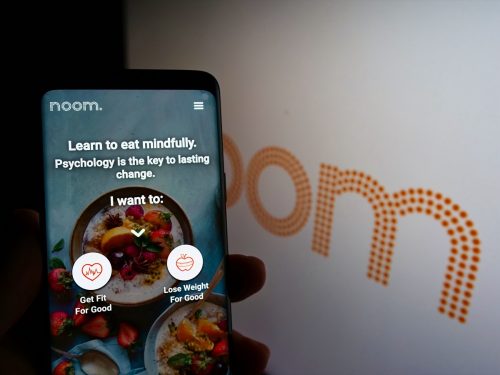
Noom is up first on the recommended calorie tracker apps.
“Noom is top-rated because it uses psychology and is easily sustainable,” Melissa Pfeister, Stanford Medicine-certified nutritionist and founder of Stripped with Melissa, tells Best Life. “You can customize your own plan, you can eat what you want without point systems or carb cutting and you can still eat all of your favorite foods! Noom works because the main focus is on behavioral change.”
Speaking to this, Noom advertises its platform as being focused on lifestyle, as opposed to dieting. You start out by taking a quiz about your goals and habits, also going through daily lessons when you log in. If you have trouble staying motivated, Noom has you covered via a virtual coaching team.
However, it’s worth noting that the app is somewhat pricey ($70 per month for an auto-renewing plan and $209 for an annual auto-renewing plan). And on Reddit, some users have flagged issues with the interface and somewhat “inaccurate” food tracking system. So, you’ll definitely want to take advantage of the seven-day free trial to see if Noom fits you.
2
Keto Cycle
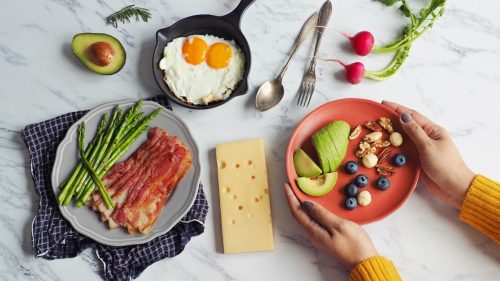
Also on Pfeister’s list is Keto Cycle, which is a great option if you want to follow a ketogenic diet. Often just called “keto,” this is a high-fat, very low-carb approach to eating.
“Keto Cycle is just that, it keeps you on the keto diet while helping you to count those calories,” Pfeister shares. “It calculates your calorie intake and provides meal planning, ingredients, and even cooking time. If you need or want to participate in the keto diet, this is a great one for you.”
On Reddit, users do agree that the meal-planning aspect is beneficial for those following this diet, but the app’s interface can be a bit difficult, as it’s not “user friendly.”
RELATED: 9 High-Fiber Foods for Weight Loss That Will Keep You Full and Satisfied.
3
MyFitnessPal
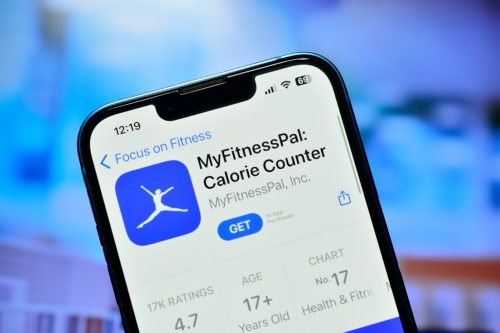
An oldie but a goodie, MyFitnessPal is another option to help you track your calories.
It’s a recommendation from Dandrea-Russert, who notes that in her experience, MyFitnessPal’s “vast library of foods” seems more accurate than other apps.
The platform has a free version and a premium version available for both iOS and Android, allowing you to customize your goals and calorie counts. It also has metrics to show you the nutritional value of your choices and break down macronutrients and micronutrients.
The free version will likely suffice for most, although you’ll have to sacrifice perks like barcode scanning and an ad-free experience.
4
WeightWatchers
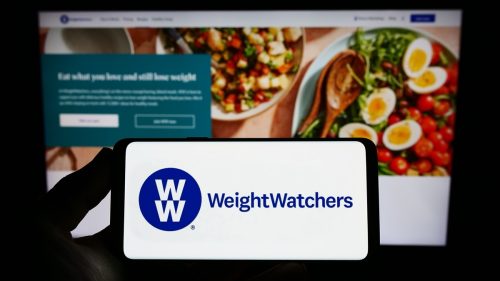
WeightWatchers is another familiar name, but the system has evolved to keep up with the times. After downloading the WW app, it’ll ask some questions before choosing the best program for you. This may be one of several, including the classic Points Program, which you use to “spend” on the foods you eat throughout the day, or the WeightWatchers GLP-1 Program, which is designed for those on weight-loss medications.
“WeightWatchers is helpful for many because you have support and support is a huge key factor for many people wanting to lose weight,” Pfeister says. “And tracking your food intake makes your progress visible. WeightWatchers has a huge community and is incredible with mindful eating.”
According to Lauren Kort, MS, registered dietitian with Bariendo, WW is similar to Noom thanks to the “coaching and teaching component,” which can work well for certain people.
WW is another app you’ll have to pay for—although you can often score a deal depending on the subscription plan you choose.
RELATED: Ozempic Foods to Avoid: 7 Things You Can’t Eat on Weight-Loss Drugs.
5
Cronometer
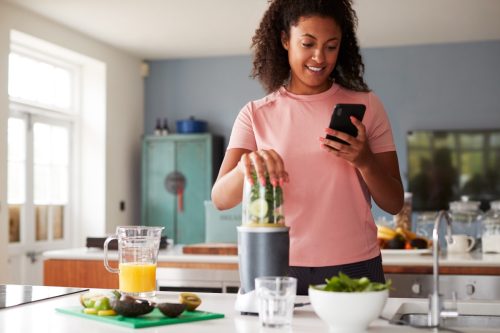
Dandrea-Russert suggests checking out Cronometer, which is another app that may have a more accurate food library. This option not only helps you count your calories, but also ensures that you’re getting the nutrients you need to see progress.
App features include custom diet settings, a fasting timer, and diet support, according to the website. Cronometer is also great if you want a free calorie tracker, since you don’t need to pay for a basic account.
6
Simple
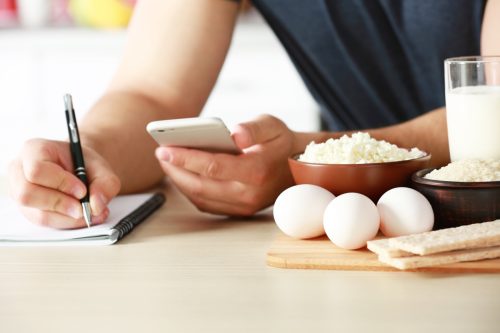
Pfeister also recommends the Simple app.
“Simple is another top-rated app because of its motivating messages, and it helps you navigate fasting, hydration, meal tracking, and fitness,” she says. “So if any of those fit your diet plan, Simple is science-based nutrition and the one for you.”
This app is somewhat unique in that it uses AI with its food tracker: To log a meal, you can take a voice recording, type it out, or even take a picture. Per the Simple app website, you then get “science-based, judgment-free insights” on your food choices that enable you to make healthier choices. Simple also offers a chat feature that can address your wellness questions 24/7.
The app is particularly helpful if you’re trying to introduce intermittent fasting to your daily routine, users share on Reddit.
RELATED: Lose 50 Pounds by Following 2 Simple Rules, Successful Dieter Says.
Find the app that suits you, but recognize that calorie tracking isn’t for everyone.

In general, dietitians note that you should find the app and the approach that works best for you.
“The best [app] to use is the one you feel most comfortable with and will use consistently,” Kort says. “One difference you might find between apps is the amount and accuracy of the foods in the database. Sometimes, the larger and most established apps will have more foods already in the system, which can make the process of tracking less time-consuming.”
“However, it is smart for people to always verify that the listed nutrition information is accurate,” Kort continues. “This can be done by comparing a food label with what is listed in the app.”
In addition, you should be mindful that counting calories may not be the best approach for you, especially if you’ve ever struggled with an eating disorder. Calorie-tracking apps can also vary in terms of accuracy and take away emphasis from the importance of quality as opposed to quantity, Jirapinyo says.
“Calorie counting may cause people to make decisions purely on the basis of calories, ignoring the nutritional content and overall health advantages of meals. For some people, monitoring calories may lead to compulsive tracking, restricted eating, or anxiety about food,” she cautions. “Calorie counting shouldn’t replace listening to hunger and fullness cues. Ultimately, your body will give you signals when you need to eat and when you are full, regardless of what your calorie tracker says.”
Best Life offers the most up-to-date information from top experts, new research, and health agencies, but our content is not meant to be a substitute for professional guidance. When it comes to the medication you’re taking or any other health questions you have, always consult your healthcare provider directly.